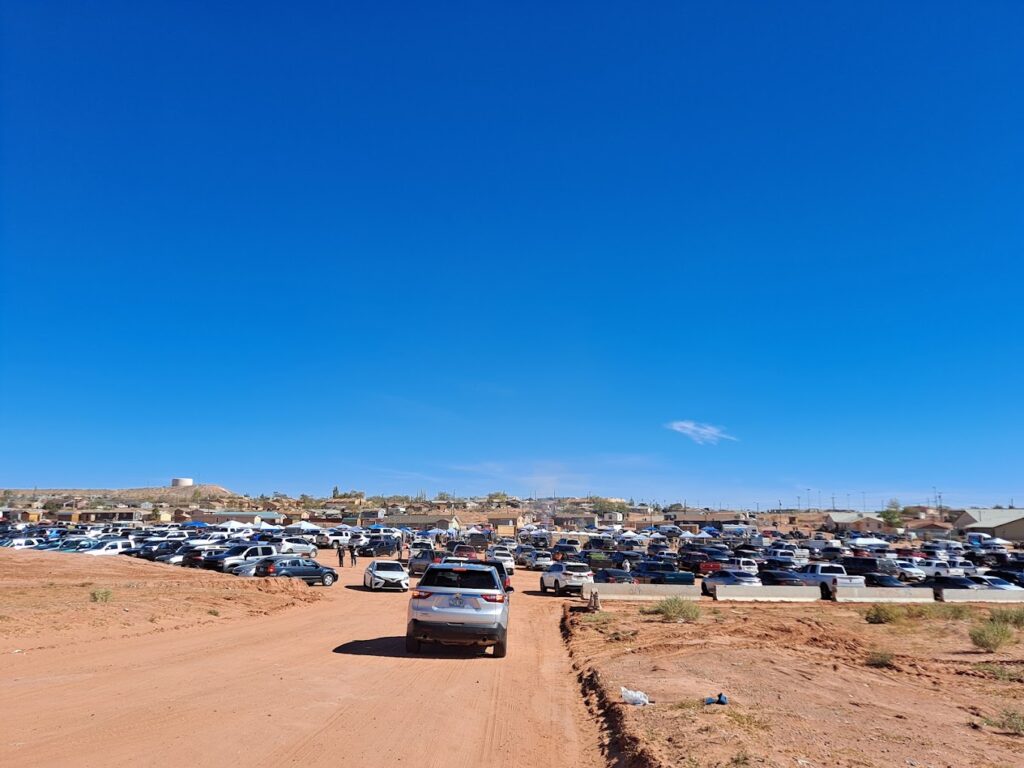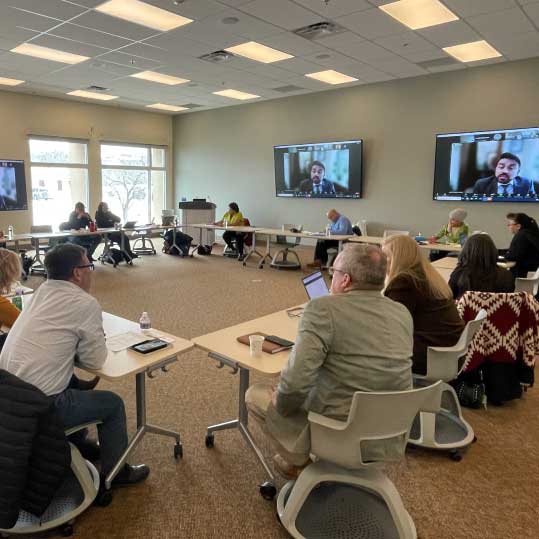The Alliance for Navajo Broadband has concerns about the proposed Tower Siting Regulations before the Resources and Development Committee of the 25th Navajo Nation Council. We feel they will actually prevent crucial telecommunication broadband infrastructure expansion on the Navajo Nation. Here are 6 reasons to oppose them.
- Insufficient Public and Industry Engagement in Writing the Regulations
The TSRs were developed without sufficient public hearings or input from stakeholders. With all Regulatory Commissions there is a process that is followed to communicate changes, take input and make adjustments were necessary for the best interest of the Navajo People. Transparency in rule making is a crucial component of adoption. Repeated requests made of the NNTRC to release any revisions have not been answered.
- Redefining Existing Leases to change Rights of Leaseholders and Permits
The Proposed Regulations will redefine all existing leases, rights-of-way (“ROWs”), and applications that were already approved by the Navajo Nation. The proposed regulations will negatively impact the rights of existing lease and ROW holders by preventing tower construction or fiber buildout on their leased area. It will require lease holders to withdraw parts of their lease to return it to the Nation. Local planning and control for this construction will be eliminated. This will also introduce extreme uncertainty and reduce confidence in the business environment.
- Conflict of Interest
The Department of Natural Resources currently has the responsibility to manage leases and set rates. However, the TSRs promote the delegation for lease management and fee collection to an outside corporation, which has a financial incentive in their adoption. This comes at a cost and diminishes the sovereignty of the Navajo Nation. It also raises several ethical questions as to how the TSRs will ultimately be administered, including the assignment of rates. Keeping costs of telecommunications build-out reasonable is a key factor in deployment especially in rural areas. It raises the question, “is it in the Nation’s best interest to delegate such authority and management oversight to a non-tribal entity with financial interest?”
- Centralizing Leases for payment to the Navajo Nation Government
The TSRs violate the prior land rights of educational institutes, tribal enterprises, local businesses, and other parties that have valid leases established prior to the adoption of the General Leasing Act. It is important to note that the TSRs will cut off an important revenue source to local parties that serve the public. It also will inhibit economic development for Chapters that seek to lease their lands. Centralization is not the best option for local economies in this case. Local control is necessary for local economic development.
In addition, the TSRs will impede locating facilities at previously developed sites, a very practical and low-cost solution with no environmental impact. Permitting wireless infrastructure on commercial properties, such as commercial business locations, is a very common practice throughout the Navajo Nation, and the United States. Additionally, requiring new tower construction on land that does not have an existing tower (or undeveloped lands) creates unnecessary environmental and historical processing that will add additional expense, time delays, and result in the delayed project completion.
- Autonomous Authority in One Person and No Administrative Appeal Process
The proposed approval process is very subjective, leaving all of the power in the hands of the Navajo Land Department, with no provision for an administrative appeal process. An administrative appeal process should be implemented, with set procedures for appeal, eliminating the need to directly appeal through the Navajo Supreme Court. This would allow more expedited review of such matters, and more realistic outcomes of these matters.
- Uncertainty of Rental Fees; Fees Based on Incorrect Standard
The Proposed Rules allow the Department Manager “to determine reasonable market rental rates and fees for each Lease, Permit, or Telecommunication Temporary Permits,” rather than fees tied to the costs of deployment. The FCC’s 2009 Small Cell Order laid out a strong policy rationale against excessive fees for siting. Such fees both diverted funds that could be used for deployment in other areas and discouraged investment in the areas where market rental rates are used. This uncertainty of rates will force carriers to re-examine the sustainability of those towers that are already losing money in low population regions. Rates should be incentives to do business on the Navajo Nation.
Ultimately, the objective of the Broadband deployment is to bridge the digital gap. Accessibility, sustainability and affordability should be the focus. Changing lease/ROW requirements, inappropriately increasing fees, taking away local revenues and removing local control are all defeating the main objective.
Ultimately, the Navajo students, Navajo business, Navajo people will suffer the consequences. The Navajo Nation could lose millions of broadband dollars if projects cannot move forward and are not completed within the performance period.
We, the Alliance for Navajo Broadband, urge the 25th Navajo Nation Council to postpone passage of the TSRs as currently written and to remand the matter to the NNTRC with instructions to conduct workshops inviting all stakeholders and the Navajo people. They need to demonstrate that input has been received and considered. It will result in better telecommunication regulations that will instill a faith of fairness of the Nation and promote investment on the Navajo Nation.




